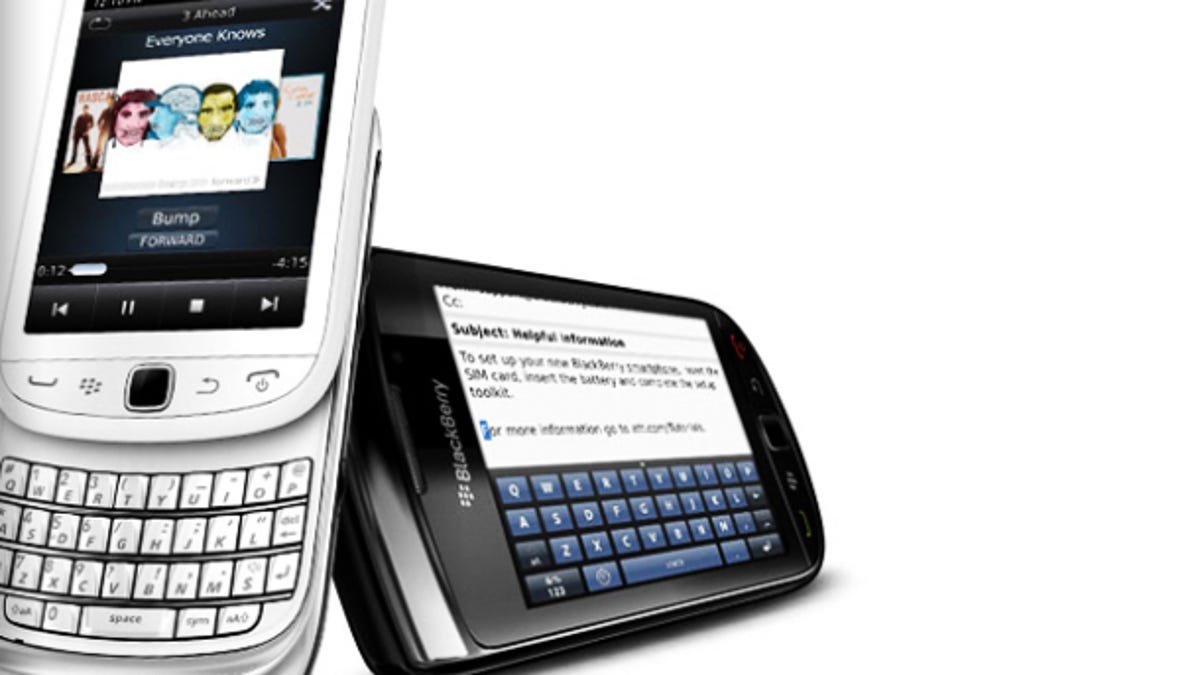Did RIM just meet its Waterloo? (No, not Waterloo, Ontario)
Where to start on RIM? First the bad news. And then more bad news.

Where to start? So much went so wrong during Research in Motion's fiscal first quarter that anyone looking for the proverbial silver lining in today's dismal earnings report would go blind.
By now even the most patient RIM investor is likely going to scream bloody murder after this mess of a report which was worse than many expected, if that's possible. The highlights:
- The company lost $518 million, or 99 cents a share, compared with net earnings of $695 million, or $1.33 a share, in the same period a year earlier. Wall Street was expecting an "adjusted" loss of 4 cents a share on revenue of $3.07 billion. (By the same adjusted standard, RIM's quarterly loss was 37 cents a share -- only nine time larger than expected!)
- Sales plummeted 33% to $2.8 billion from $4.2 billion in the year-ago quarter.
- RIM's 28% gross margin in the quarter narrowed from 39.8%.
- RIM will eliminate 5,000 jobs by the end of its fiscal year. That's about one-third of the 16,500 people it employed last March.
- 7.8 million BlackBerry smartphones shipped during the quarter, down 41 percent from 13.2 million last year.
And they landed with a thud. (In after hours trading, RIM shares fell 15%.)
BlackBerry 10 remains RIM's No. 1 priority, he said. But integrating planned new features into the device had proved more challenging and complicated than anticipated. And so it's getting pushed back until the first quarter of 2013. That's a big flub. BlackBerry 10, which was expected later this year, was the offering that RIM said would feature the kind of customer experience that put its device on a par with the competition's best.
"I will not deliver a product to the market that is not ready to meet the needs of our customers, or provide anything less than an outstanding user experience with the quality I expect a BlackBerry product to have," he said. "There will be no compromise on this issue."
Besides, he said, the carriers are cool with that because they'll have faster networks ready by then.
You can't make this stuff up.
Now stuck on the sidelines until the first quarter of 2013, RIM will be missing in action while rivals announce new products and technologies on the smartphone and tablet computing fronts. If there was a sense of urgency about any of this, Heins kept it to himself. Responding to a question about how the company planned to bridge the gap, he said that RIM was "still in the process" of putting BlackBerry 7 "aggressively into the market" and that he expected this would help the company remain relevant.
At one point, Heins was asked to articulate a long-term strategy, the questioner wondering whether RIM might try a completely different tack. Heins dismissed the idea. Android wouldn't work for the company, and anyway, he wants to keep BlackBerry 10 an "open platform."
"We're not trying to be one of many," he said. "We are trying to be different.... If I continue to rely on someone else's OS and someone else's platform, would that allow me in the long run to really differentiate?" RIM limited analysts to a single question but the obvious follow-up would have been to point out that Samsung had figured out a way to differentiate its products while using Android.
RIM investors can hope this was just an act and that Heins and his lieutenants are actually running around headquarters as if their hair's on fire. I mean, all you need to do is log onto the Internet each day to read about the latest tech advances. It looked bad for RIM last quarter. Now it's looking even worse. After the latest run of bad news, it's reasonable to ask how much longer the BlackBerry can remain a viable growth platform.
OK. I remember a time when Apple was on the ropes, so miracles do happen -- albeit rarely. If any developers were listening in today, what are the odds they'd want to create new BlackBerry apps just about now? Old technologies aren't like old soldiers; when they stop keeping up, they don't have the luxury of fading away. It's simply the end of the line.

